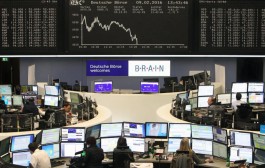The price of oil rose alongside financial markets after falling nearly 7% over the previous two sessions amid signs of deteriorating demand expectations.
The price of global benchmark Brent crude rose to nearly $80 per barrel after closing below this level yesterday, Wednesday, for the first time since July. West Texas Intermediate crude was near $76. Stocks rose in Asia after US stocks rose for the eighth straight day on Wednesday, their most momentum winning streak in nearly two years, amid optimism that US interest rates have peaked.
Oil prices have fallen sharply over the last three weeks as a result of growing concerns about weak demand. Markets returned to focus on fundamental movements, as refining margins declined and inventories increased in China, the world's largest importer. Asia's largest economy returned to contraction last month, according to data released on Thursday.
Oil supplies from the Middle East - the source of a third of the world's crude oil supply - have not been affected in more than a month after the Hamas attack on Israel. Russian shipments are approaching their highest levels in four months, and sector data showed an increase in US crude inventories by about 12 million barrels last week.
Concerns about demand are currently supporting market sentiment, said Charu Chanana, market strategist at Saxo Capital Markets. He added: Aggregate data issued by the United States and China, in addition to EIA inventory data, will be essential in the near term to assess the impact of high interest rates on oil demand.
Brent crude's further decline was reflected in the price differentials between its two closest-dated contracts, as the price premium for shorter-dated contracts largely evaporated. The difference was 16 cents in the case of Backorder, compared to $1.65 a month ago.







































